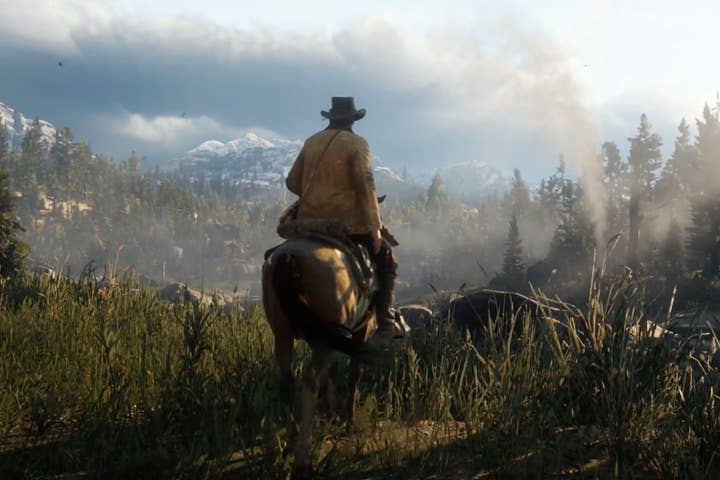Take-Two CEO: "Fortnite never affected the industry"
Strauss Zelnick explains why free-to-play games won't change premium business models, and why platform revenue share splits may soon change
For the last year and a half, the question, "How is the rise of free-to-play/battle royale/Fortnite affecting you?" has been a familiar one across multiple gaming company investor calls and conferences. But ask the CEO of Take-Two, Strauss Zelnick, and his answer seems to be that it simply isn't.
During a presentation at Baird's 2019 Global Consume, Technology, & Services Conference today, Zelnick began by retreading some of the ground he already covered at another conference last month regarding free-to-play business models. When the time came for questions, he took that conversation another step further by looking specifically at Fornite's success and its impact on the industry. Or in Zelnick's view, lack of impact.
When asked if the surge of free-to-play game releases would affect the pricing of paid titles, Zelnick responded that it wouldn't, because "they're different animals." Zelnick believes that any game - free-to-play or otherwise - being successful doesn't have an impact on other games being successful, since games that are good enough to succeed in the first place are usually incredibly different. That's where he brought in Fortnite as an example.
"I think the biggest disconnect on the topic is sort of a Fortnite disconnect too. I'm occasionally asked, 'Is the Fortnite effect affecting the industry?' And the answer is, Fortnite never affected the industry. Fortnite didn't affect us in the least. We had huge hits when Fortnite was in the market, because Fortnite is different from our titles, and our titles are different than Fortnite."
"I don't believe for a minute that simply being available in one business model means something that is completely different can't be available in another business model. There is no need for any entertainment property. If there's no movie you want to see, you don't watch any movies. And if there are a number of movies you want to see, you try to find a way to watch them all. But they don't fill up a need - the need doesn't exist in absence of something you want.
"So that's why when people said, 'Is Fortnite crowding out other titles?' No, not in the least. I think some companies point at Fornite as sort of an excuse for why their titles didn't do well. But our view is, when titles are great, they do well, and when they're not as good, they don't do well...Put out something really great in entertainment, and people will show up for it."
Another question Zelnick was asked touched on the standard revenue model for gaming storefronts such as the App Store and Steam, where the developer receives 70% of the earnings from a sale and the platform receives a 30% cut. That model has recently been shaken with the Epic Games store's 88/12 split, and Steam reducing its share for games that sell enough copies.
Zelnick sees the increase in storefronts willing to challenge the model as the beginning of a larger, industry-wide change.
"In the event that there is broader distribution, one would believe that the percent a platform can take would have to go down," he said. "The platform take rates were driven by the fact that there were two platforms effectively that had the same business model and didn't change it. That's relatively easy to do in an oligopoly and exceedingly hard to do in a broad economy. While a distribution platform offers value, if there's five of them and they're all equally good, and you can decide whether to make your products available on the platform, and the platform's not viable without your product, then I think that gives you some leverage on the take rate.
"I wouldn't underwrite to it, but my opinion is that you're going to see take rates decline materially and obviously that [directly impacts] operating profit. I believe that will happen very quickly.
"Just by way of putting it in context, say you're launching a service that offers video games, and you can't come to terms with Take-Two. So that means you're going to offer a robust service that does not include Grand Theft Auto, the biggest title in the business, Red Dead Redemption, one of the biggest titles in the business, [NBA 2K], the biggest sports title in the US, WWE, Civilization, Borderlands, BioShock, and the list goes on. Good luck to you."

